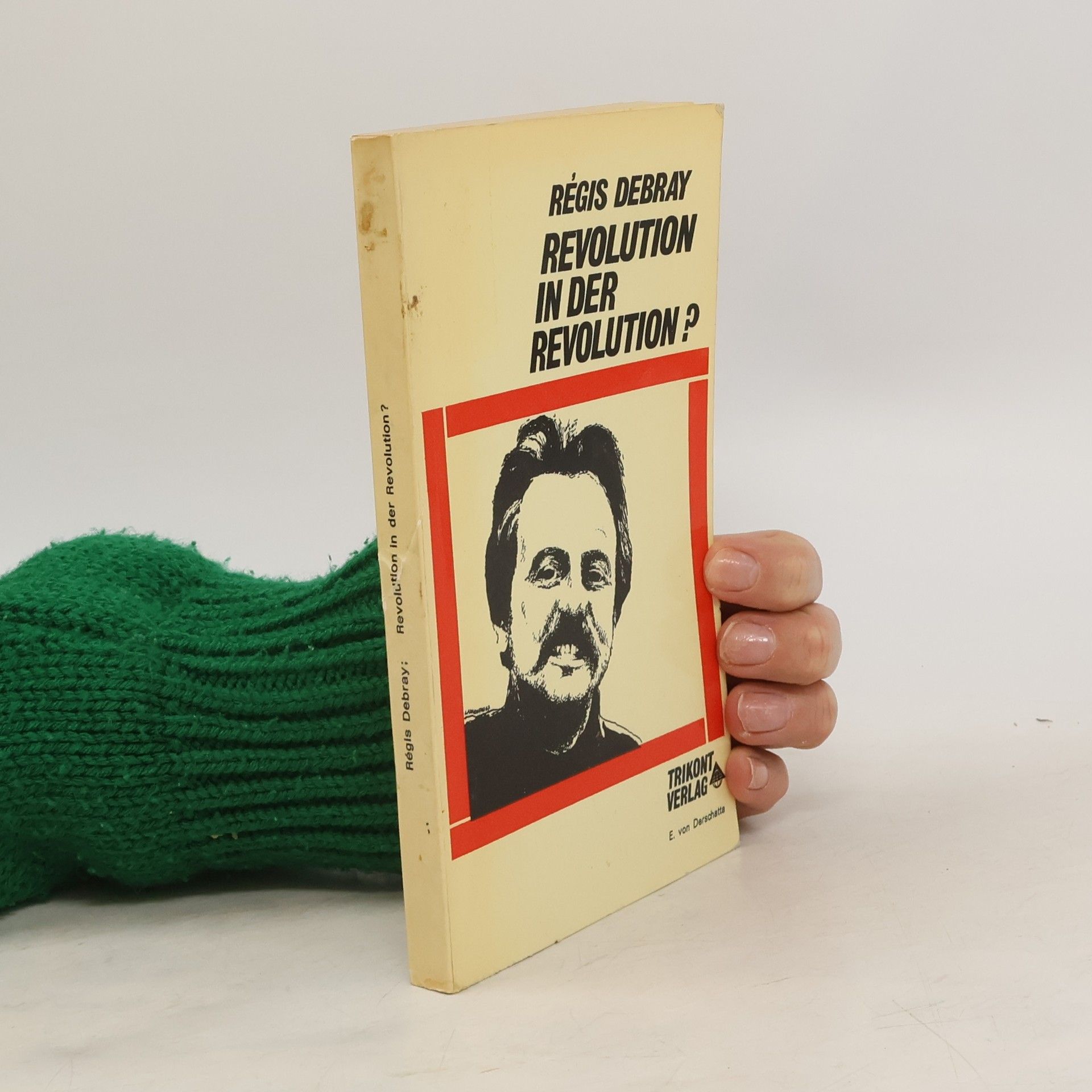On the fiftieth anniversary of the coup that overthrew Allende, a new edition of this classic text on his political perspectives and the process he unleashed in Chile
Régis Debray Boeken
Als intellectueel, journalist, overheidsfunctionaris en professor staat hij bekend om zijn theorie van de medialogie. Deze kritische theorie onderzoekt de langetermijntransmissie van culturele betekenis binnen de menselijke samenleving. Zijn werk duikt in de manier waarop betekenissen over generaties heen worden doorgegeven, en biedt een unieke lens om de maatschappelijke evolutie te begrijpen. Zijn ideeën vormen een diepgaande invloed op ons kritische begrip van collectief erfgoed.







S'en tenant aux traces empiriques, l'ouvrage cherche par quelles voies le feu de Dieu a pu se transmettre du désert à la plaine. Il cherche à répondre à une question enfantine : Pourquoi des centaines de millions d'hommes continuent d'aller à sa rencontre?
D'un siecle l'autre
- 299bladzijden
- 11 uur lezen
Filozofowie są szczęśliwi, mając Minerwę za boginię patronkę. Jej sowa wylatuje o zmierzchu. Szczęśliwym zbiegiem okoliczności, tam właśnie jestem. Tuż przed zapadnięciem nocy, sowa użycza nam swoich oczu i pokazuje widok z lotu ptaka na szereg zagrożeń, które sprawiły, że dojrzeliśmy. Następnie możemy przewinąć film do tyłu i zauważyć krzywą łączącą ze sobą pory roku. Proszę wybaczyć mi zuchwalstwo, ale wydawało mi się, że przypowieść o francuskim “intelektualiście”, znającym więcej niż jeden kraj i mającym parę wykroczeń na koncie, mogłaby, jak wiele innych tekstów, przyczynić się do nakreślenia kartografii bardzo zajętej i wciąż trochę zamglonej epoki. Régis Debray
C'est quoi, une civilisation ? Comment ça naît, comment ça meurt ? L'effacement de la nôtre nous aide à répondre à ces questions vieilles comme le monde. De la CIA au rap, de House of Cards à Baron noir, des primaries à nos primaires, c'est cette imprégnation de notre culture nationale par la civilisation américaine que Régis Debray dévoile avec une gaieté frondeuse, en reliant les menus faits de notre quotidien à l'histoire longue de l'humanité. Illustrée par l'exemple de la Grèce antique face à l'Empire romain, l'invariable grammaire des transferts d'hégémonie éclaire notre présent d'une façon insolite et pénétrante. Une prise de recul qui, tout en abordant de plein fouet l'actualité, surprendra également pro- et anti-américains.
Contro Venezia
- 120bladzijden
- 5 uur lezen
Le scribe
- 349bladzijden
- 13 uur lezen
Le clerc ne trahit jamais. En s'occupant de "ce qui ne le regarde pas" - les affaires publiques-, il dévoile l'intime vérité du politique. Suivre à la trace, depuis le scribe des origines jusqu'à l'intellectuel d'aujourd'hui, celui qui a pour charge d'énoncer la légitimité ou l'illégitimité du pouvoir xxx. Le sacré avait déjà fait l'objet de descriptions, d'interprétations ou d'analyses utiles - de Durkheim à René Girard, en passant par Mircea Eliade ou Roger Caillois. En deçà, ou en amont de ces recherches, cette enquête en propose une {explication}, dans une perspective rigoureusement matérialiste. Prise à distance et à contre-jour, l'actualité la plus immédiate ne s'éclairera que mieux. A commencer par celle des débats idéologiques qui remuent l'air du temps et l'esprit de nos scribes. Pour ou contre Marx ? Que choisir, de la terre ou du ciel ? A quoi bon l'Etat ? Comment en finir avec les esclaves et le tiers monde ? Cette "genèse du politique", loin d'éluder nos discussions les plus urgentes, les entame de plein fouet.



